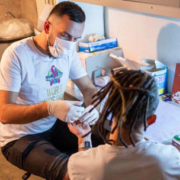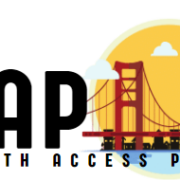November 4th – 8th HCV/HIV/STI Overdose Prevention Test Counselor Pre-Training
Upcoming In-Person Training: November 4th – 8th
This online course provides the information that forms the foundation for the HCV/HIV/STI Overdose Prevention Test Counselor Training you will be attending soon. The live trainings and the Pre-training course are built on almost 30 years of experience talking with people about stopping the transmission of HIV.
This online course is separated into reading modules, followed by a 32-question quiz. There is no time limit to complete the reading or quiz. You need at least 80 percent of correct responses in order to be eligible to participate in the in-person training. If you do not pass on the first try, you can retake the quiz one more time after reading the material again.
Learners are not able to self-enroll in the pre-training course at this time. Instead, your site coordinator should have registered you for this program and you should have received an email notification from the SFDPH Center for Learning and Innovation saying you have been enrolled in this course. If you have not yet received this email notification, please reach out to your site coordinator first to ensure they have submitted an application for your registration in this program.
If you are a learner seeking to register yourself in this program and are unsure of who your site coordinator is, or you believe you are at a site without a coordinator, please contact Todd Watkins at todd.watkins@sfdph.org.







